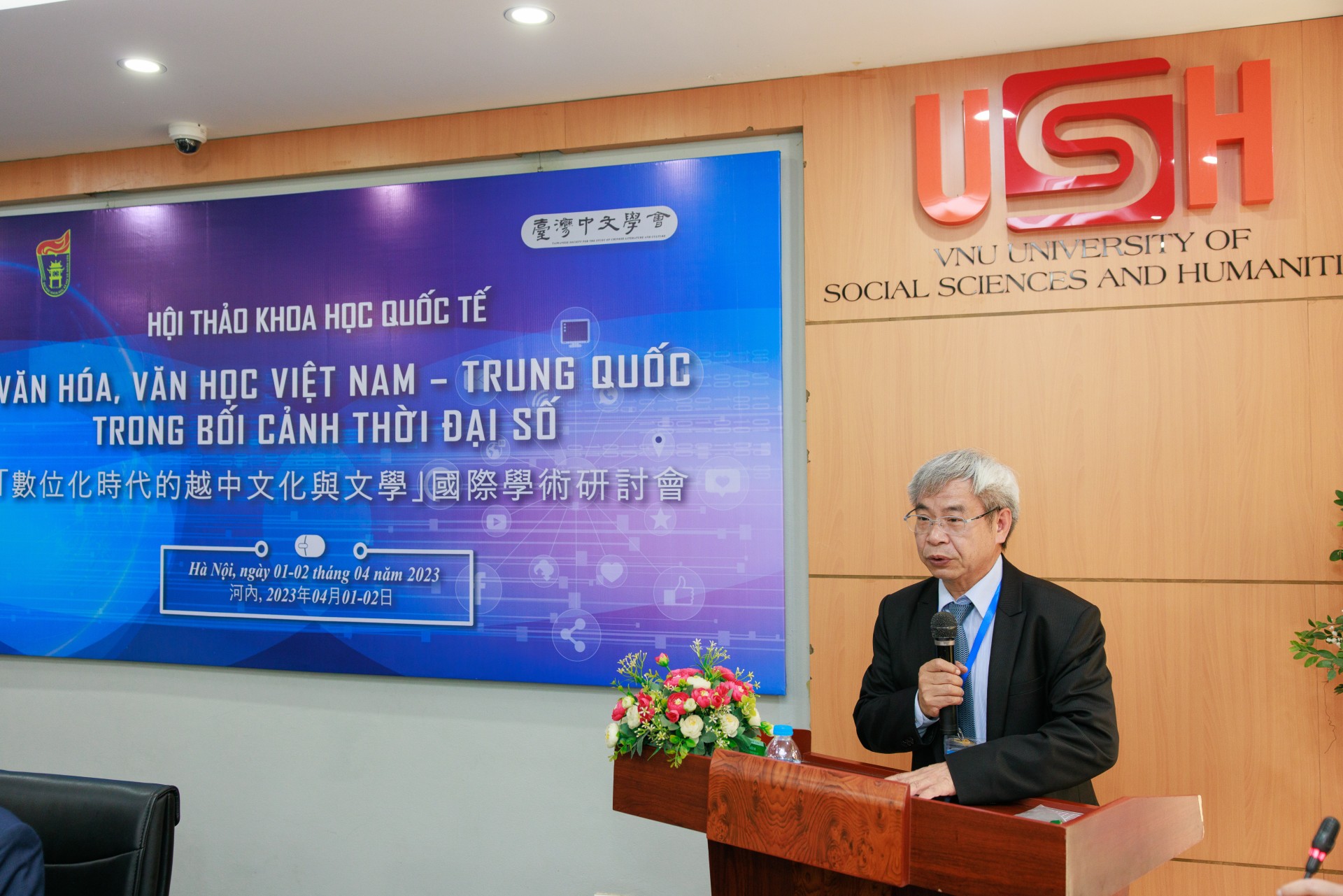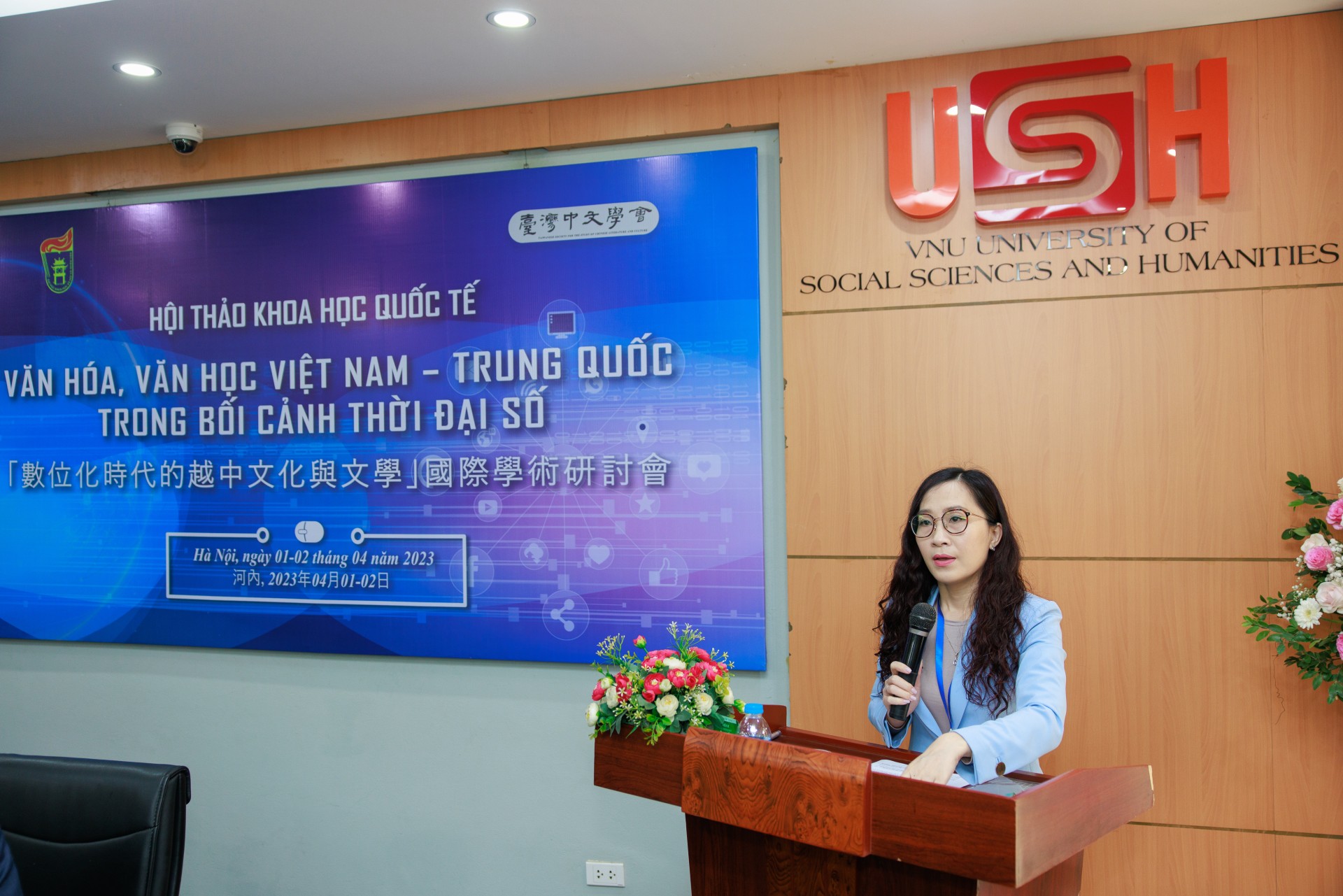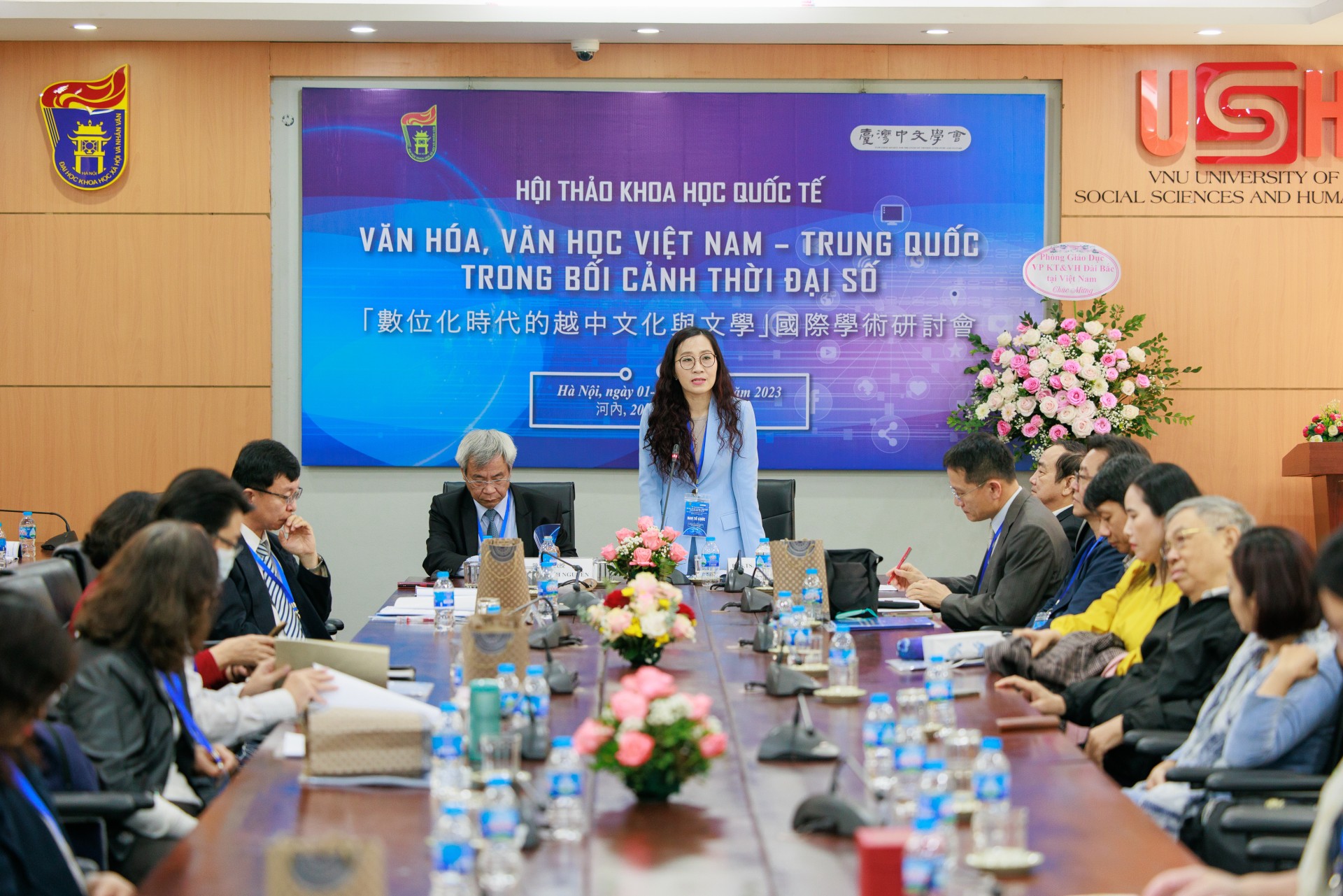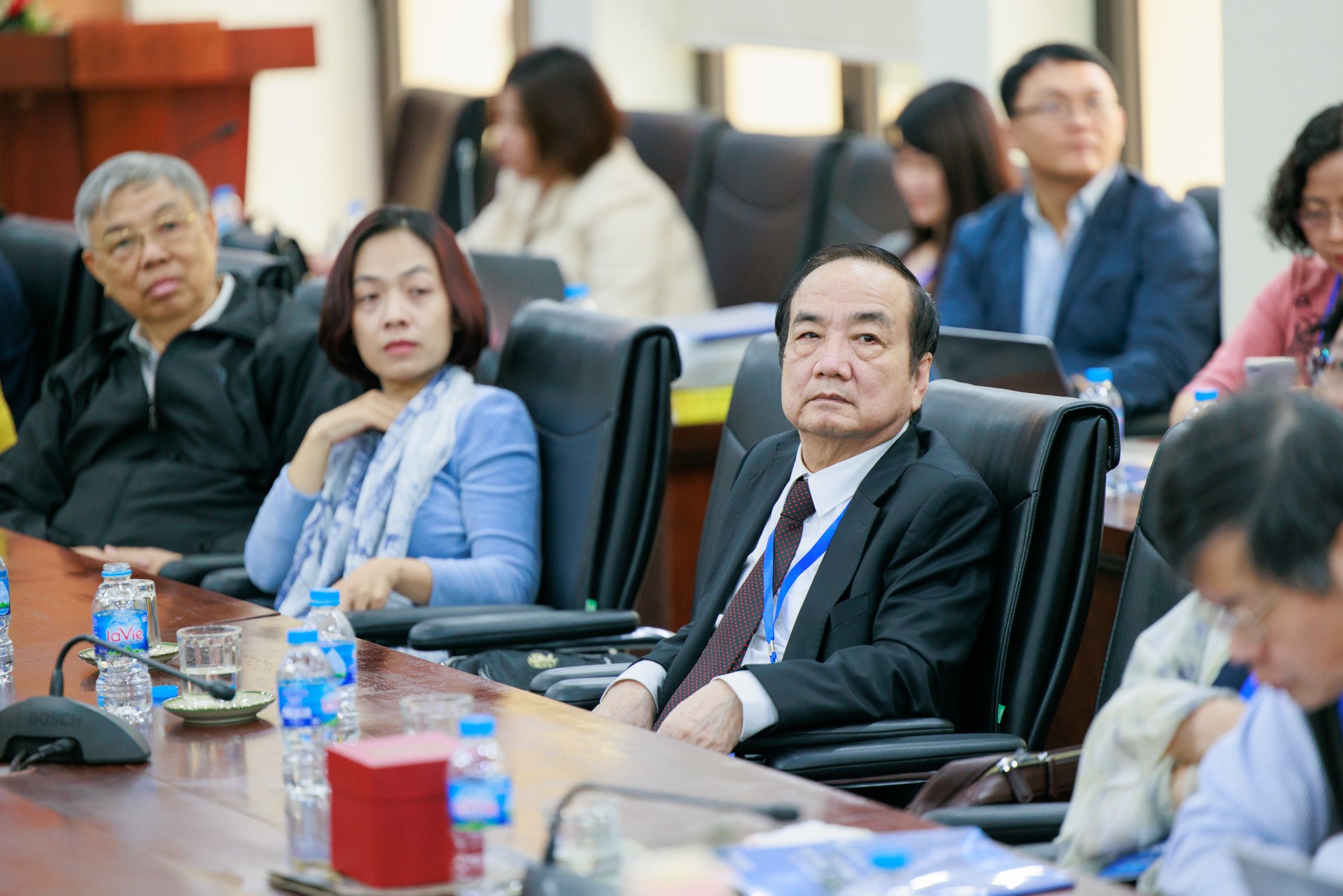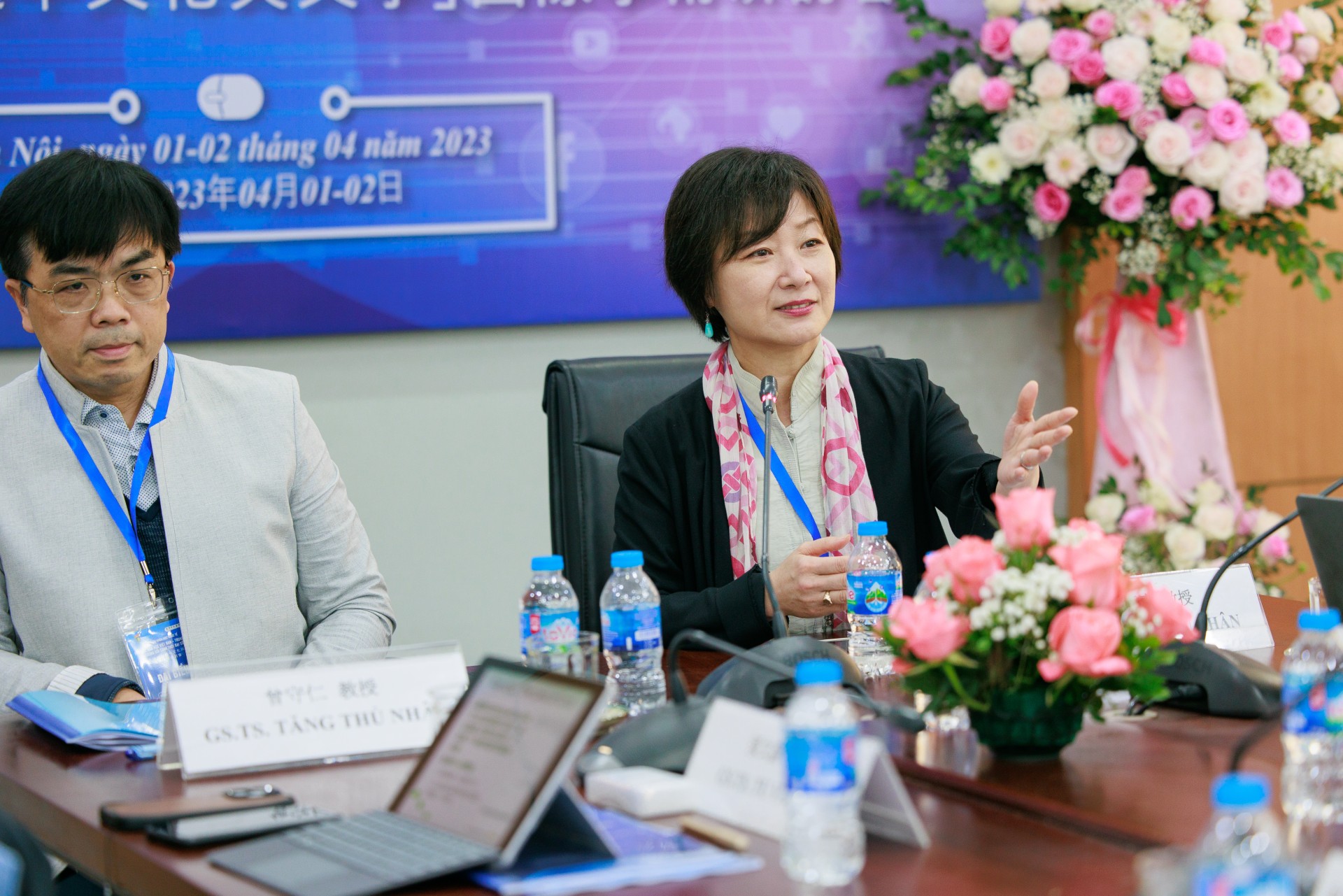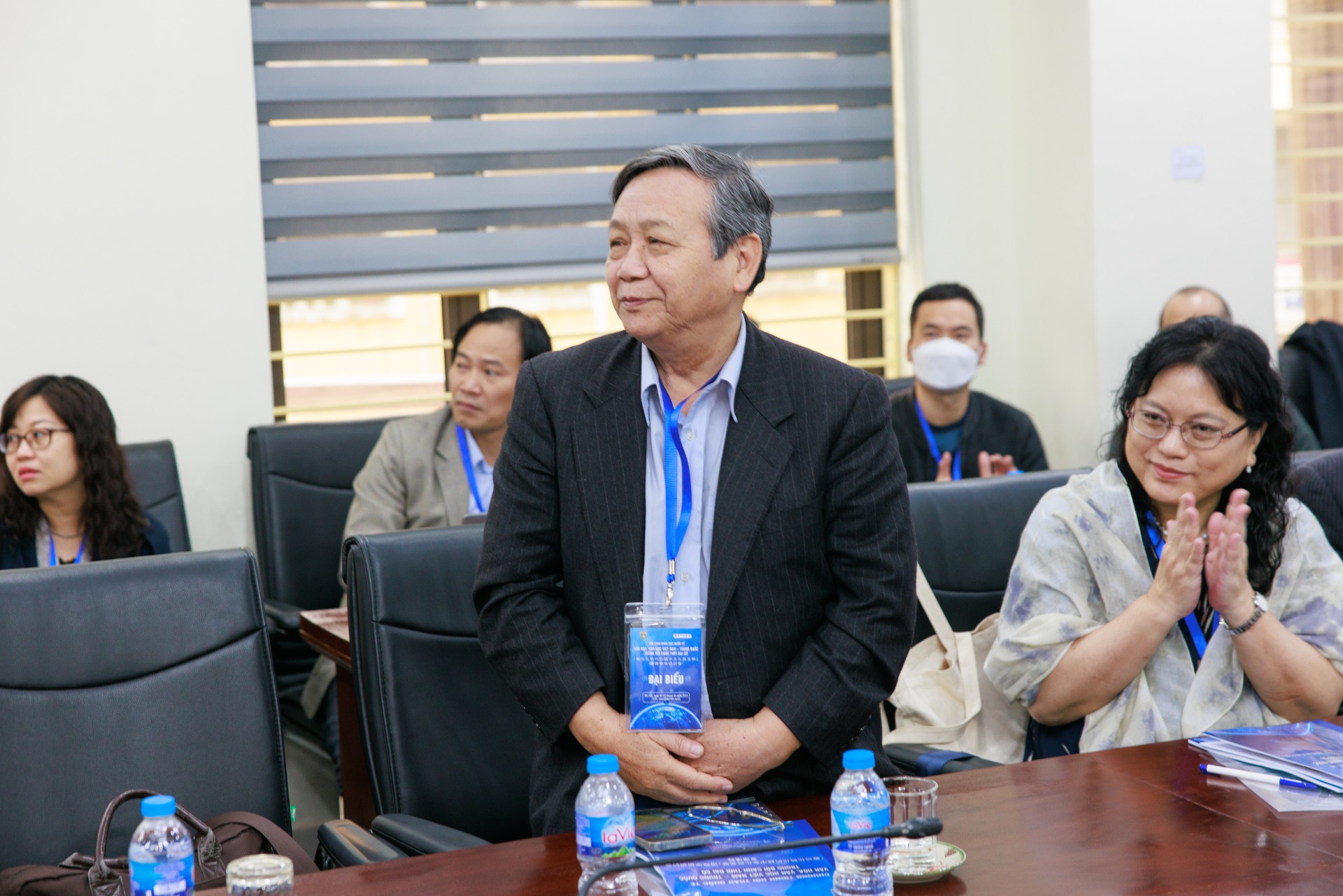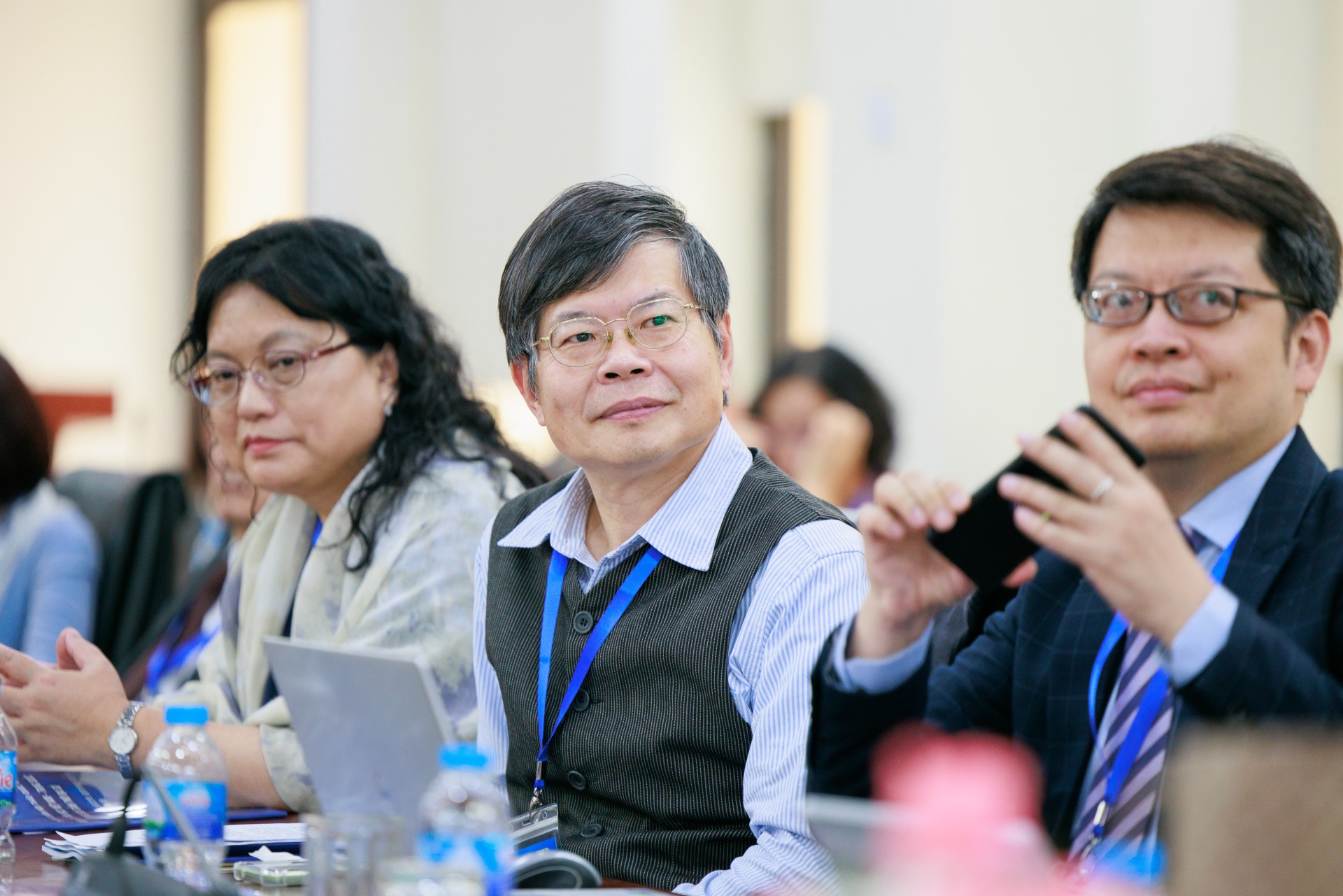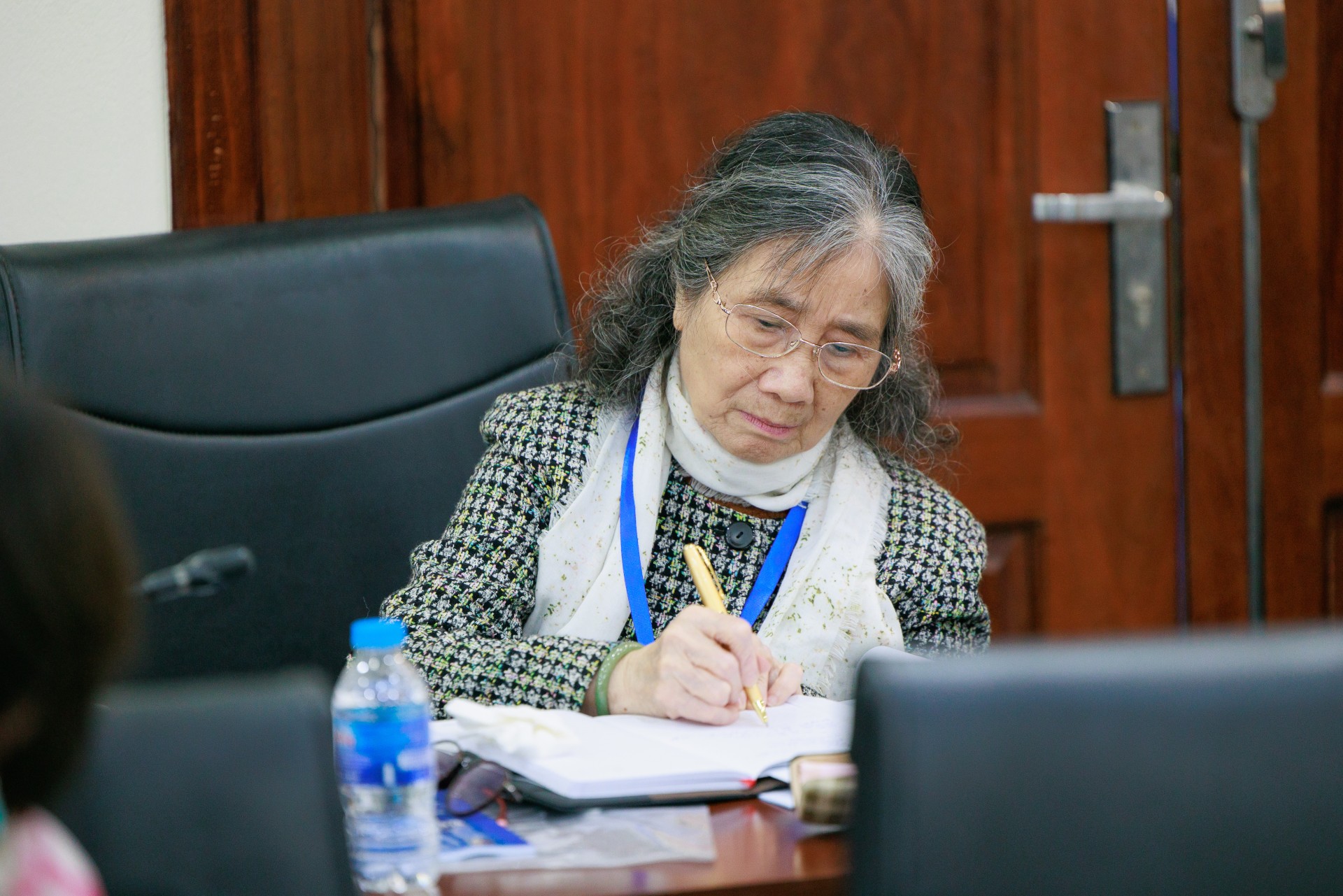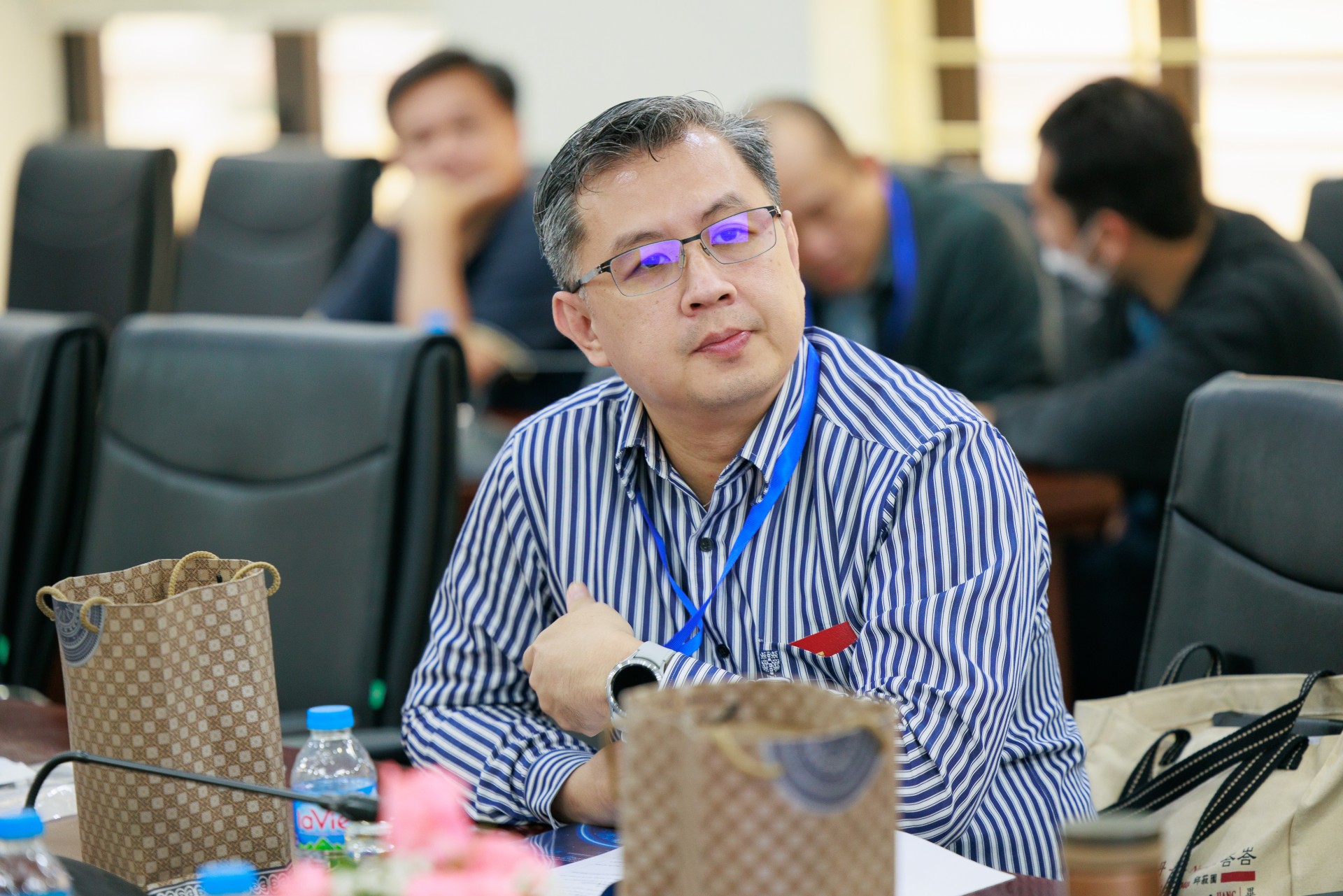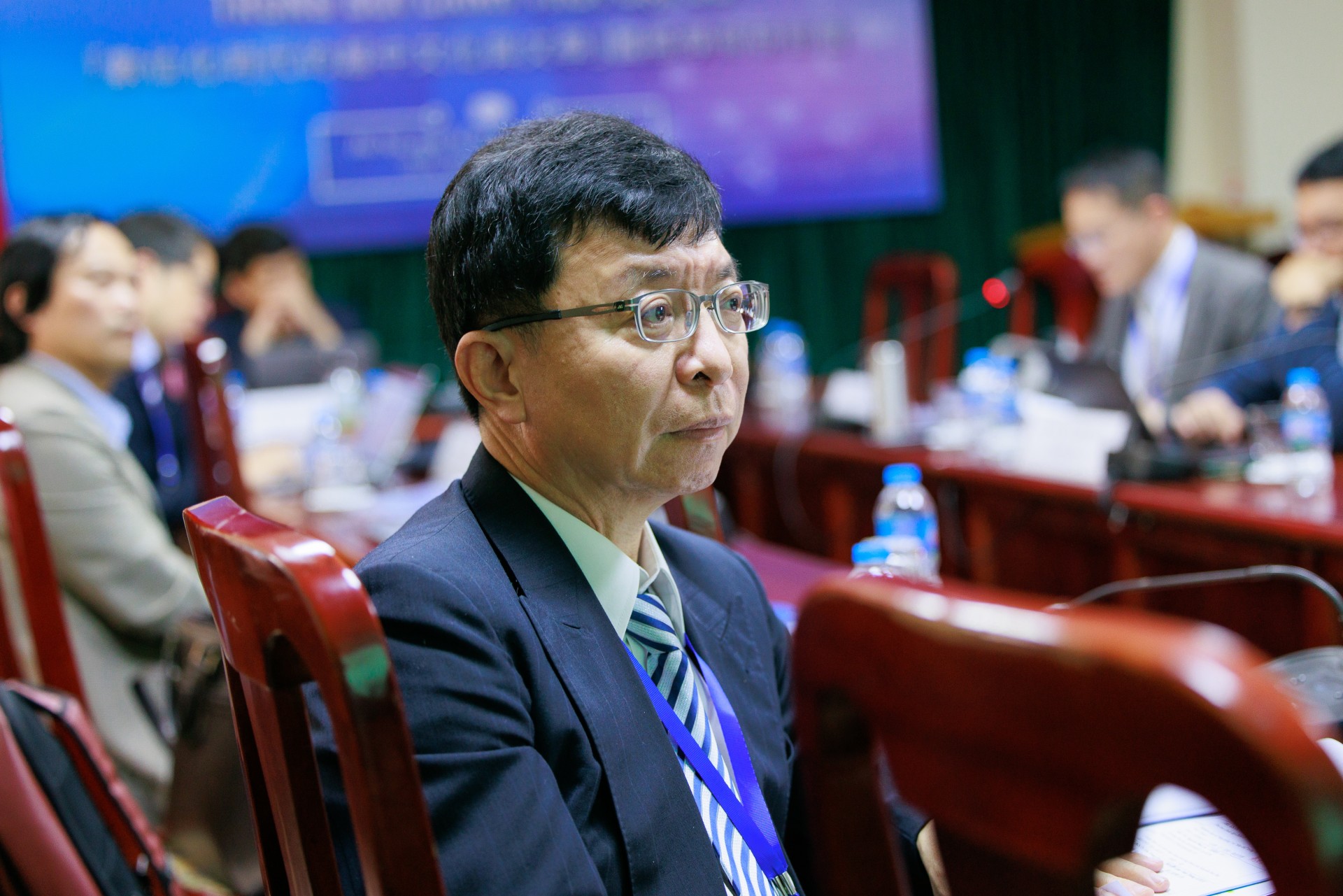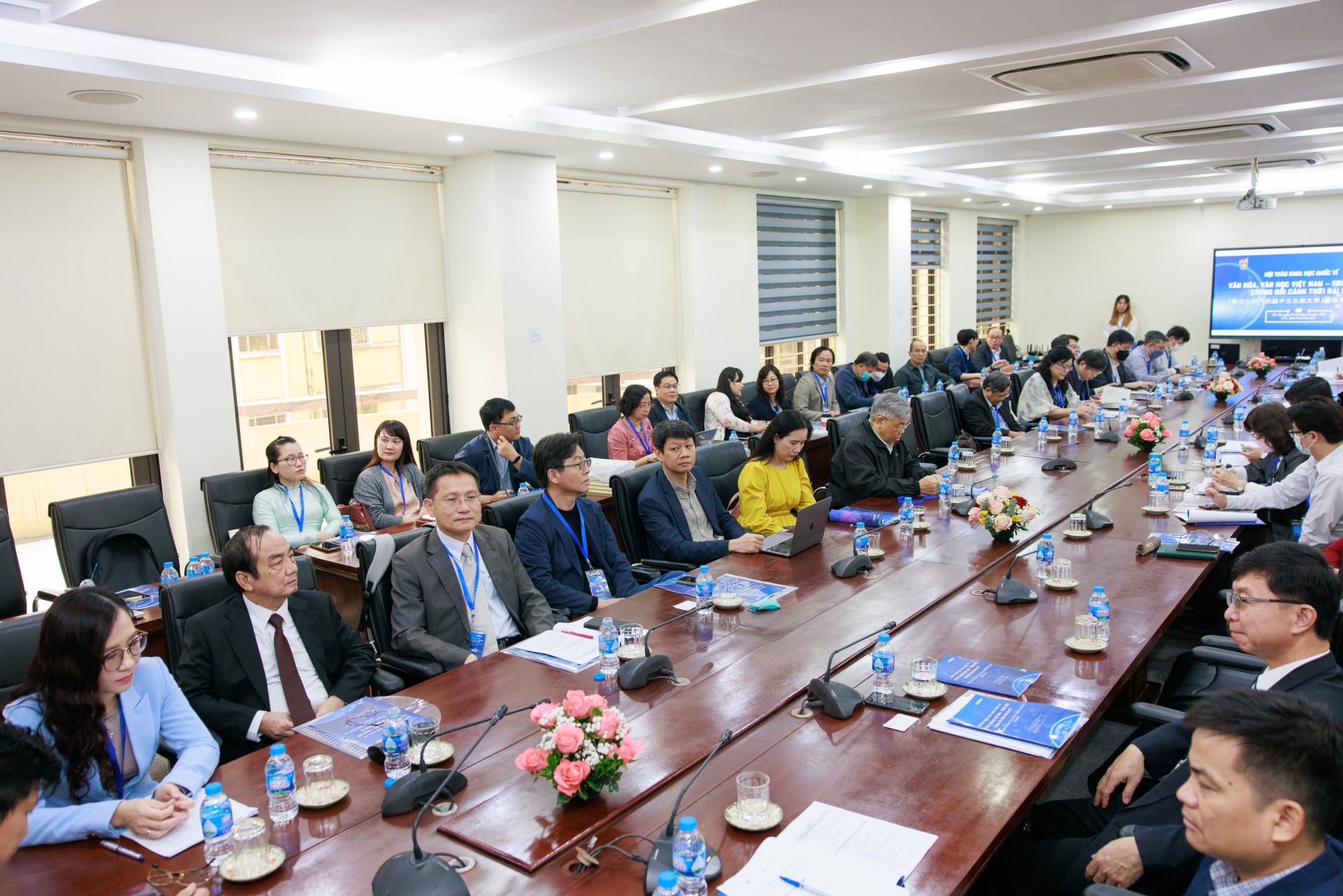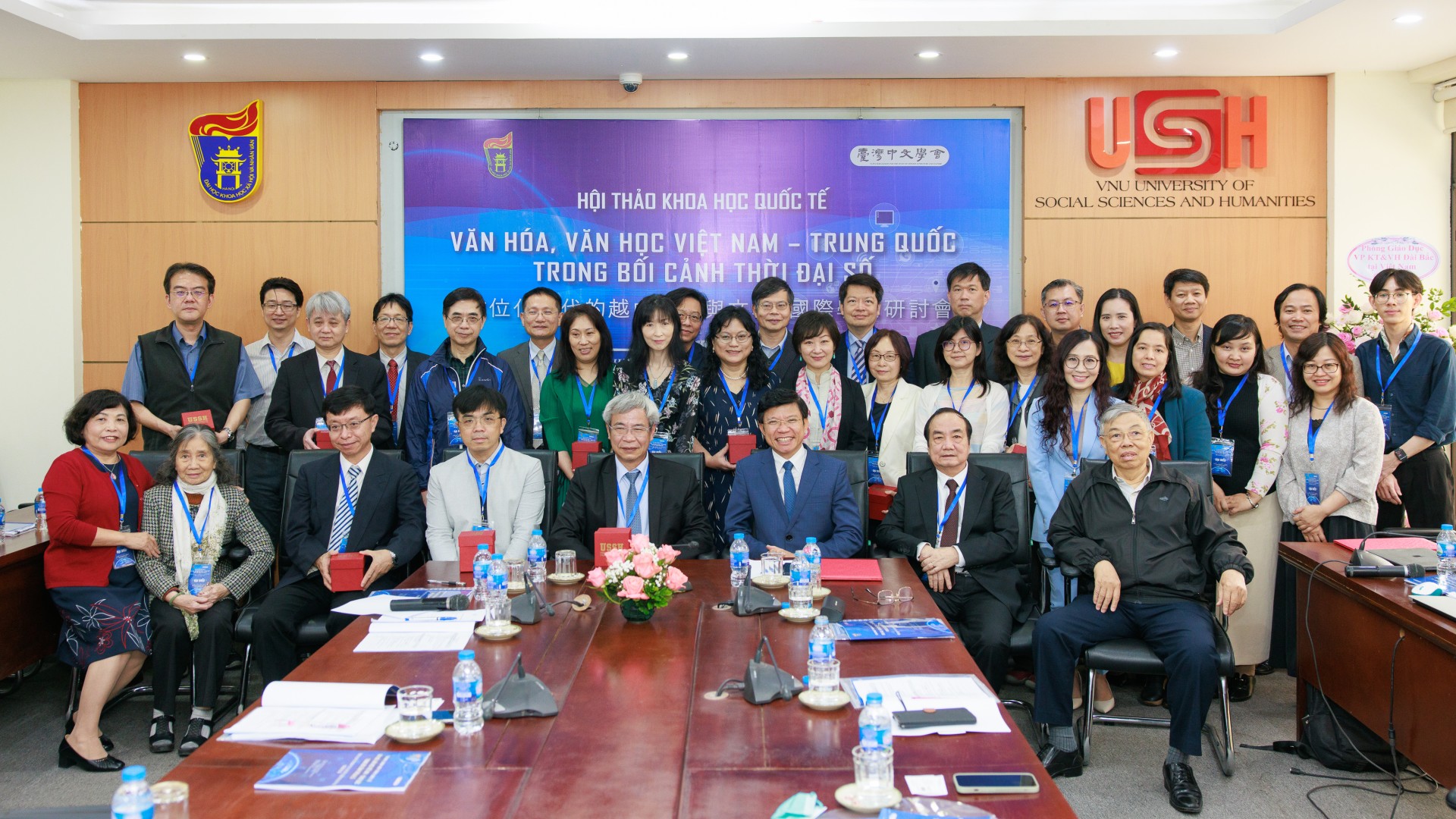
The workshop was attended by Prof. Dr. Hoang Anh Tuan - Rector of the University of Social Sciences and Humanities, VNU; Prof. Dr. Chen Yi-Yuan - President of the Chinese Literature and Culture Association of Taiwan (China) and dozens of scientists from domestic and international universities and associations (University of Social Sciences and Humanities, VNU; University of Social Sciences and Humanities, VNU-HCM; Institute of Philosophy - Vietnam Academy of Social Sciences; Hanoi Capital University; Chinese Literature and Culture Association of Taiwan (China); National Cheng Kung University; Central Research Institute (Taiwan - China); Ki Nam International University; National Political University; National Taiwan Normal University (China); National Dong Hwa University; National Tsing Hua University, National Chung Shan University ...).
Speaking at the opening of the workshop, Prof. Dr. Hoang Anh Tuan - Rector of the University of Social Sciences and Humanities, VNU emphasized: "Digital transformation is an issue that Vietnam recognizes at the national level, becoming a development orientation until 2030, demonstrating the trend of modern development and integration.
The social context and the digital age have had strong impacts on the survival of cultural and literary entities as well as cultural and literary research activities. Digital culture and digital literature create challenges for cultural and literary entities that exist in traditional forms, causing traditional cultural values and traditional ways of existence of literature to become increasingly marginalized in social life.
Without appropriate transformation, core cultural and literary values will have to give way to the massive and continuous development of cultural and literary trends with popular colors and entertainment tendencies, directly affecting the traditional cultural and literary infrastructure that is fundamental to the internal strength of the country and nation."
According to Prof. Dr. Hoang Anh Tuan, as a pioneer university in education, training and research in social sciences and humanities in Vietnam, the University of Social Sciences and Humanities - VNU in collaboration with the Chinese Literature and Culture Association of Taiwan (China) organized the International Conference with the desire to discuss the relationship between Vietnamese and Chinese culture and literature in the context of the digital age, emphasizing the core cultural values of the nation and the endogenous strength of the nation in the context of globalization.
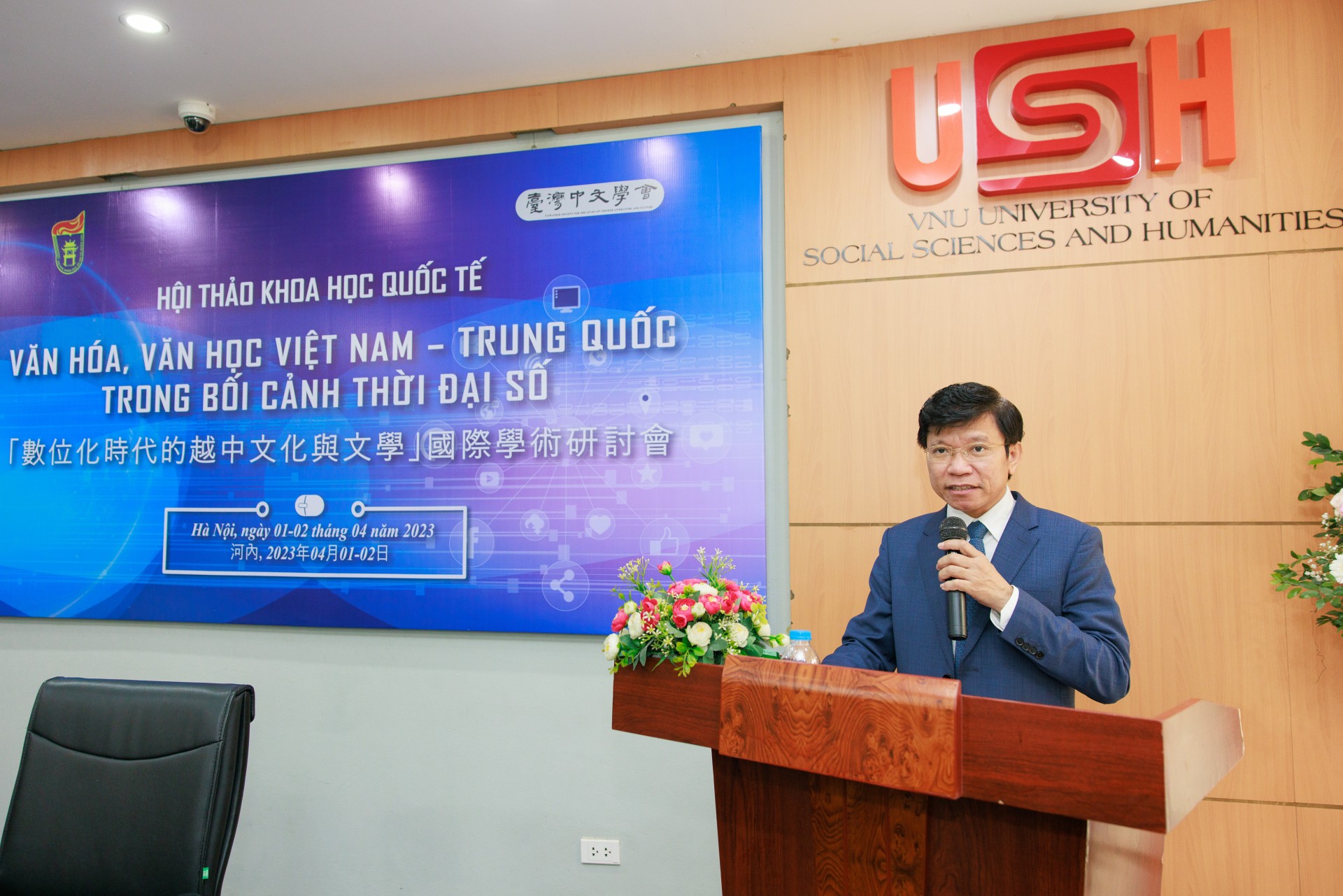
Prof. Dr. Chen Yi-Yuan - President of the Chinese Literature and Culture Association of Taiwan (China) spoke at the Conference
Associate Professor, Dr. Nguyen Thu Hien - Director of the Center for Chinese Studies, University of Social Sciences and Humanities, VNU, chaired the opening session of the Workshop.
According to scientists, when discussing culture and literature in the context of the digital age, people often think about the mechanical combination of digital technology with research activities in the fields of social sciences and humanities. In fact, in recent years, "digital humanities" has become a research trend of interest in Vietnam. But more deeply, a more important aspect in the relationship between culture and literature in the context of the digital age is that the formation of digital culture must be associated with the construction and protection of culture, basic ethical values of people and national digital sovereignty. When promoting cultural values, Vietnamese cultural people are considered an endogenous strength, an endogenous resource to develop the country in the context of globalization has become an important policy and orientation of the State, raising the issue of cultural and literary research in the context of social change and transformation into a digital age needs to be given special attention. Especially when it is placed in reference to a country or territory outside of Vietnam, the results of scientific discussions will be summarized into important theoretical and practical contents, with reference value for cultural and literary policy consulting for Vietnam.
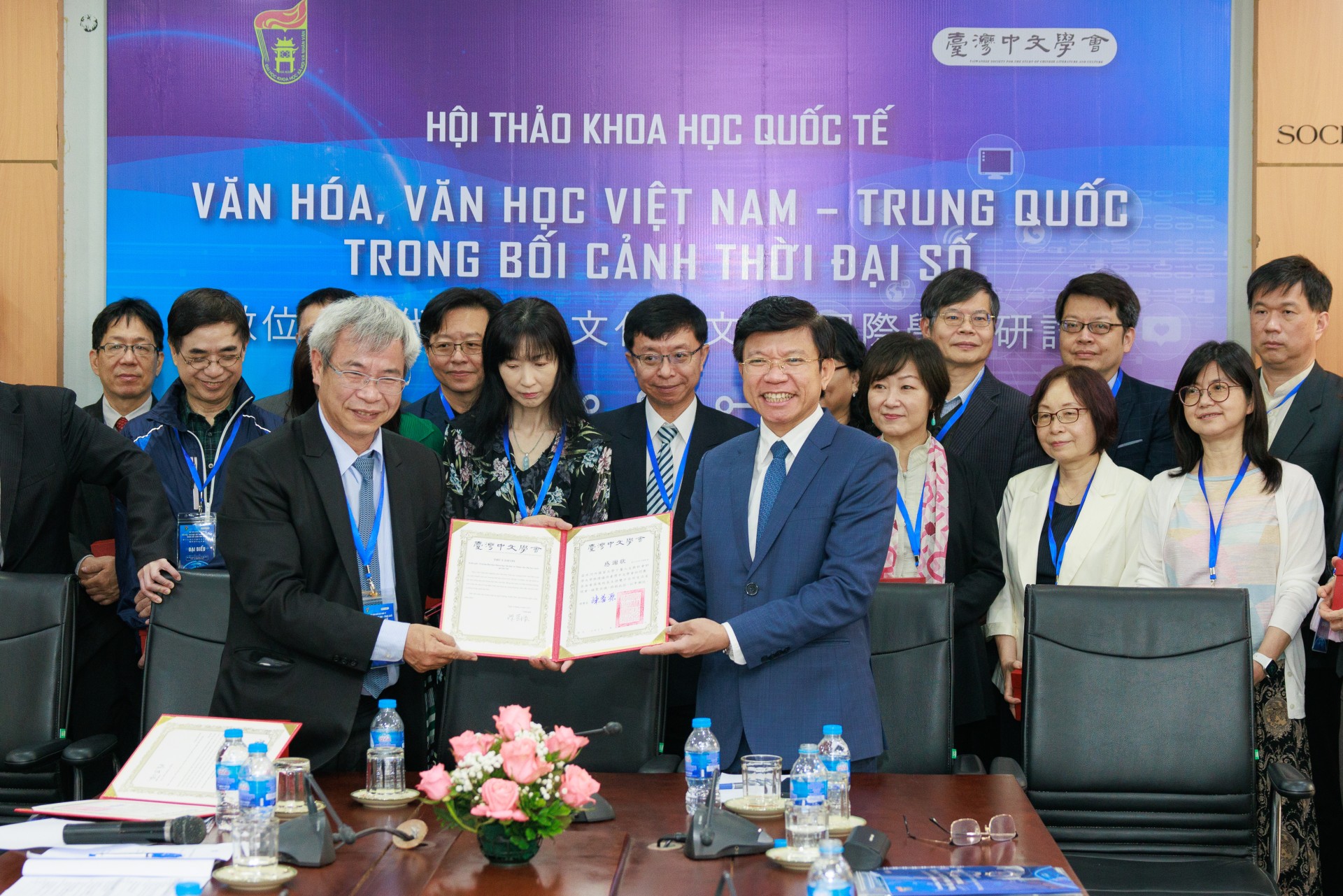
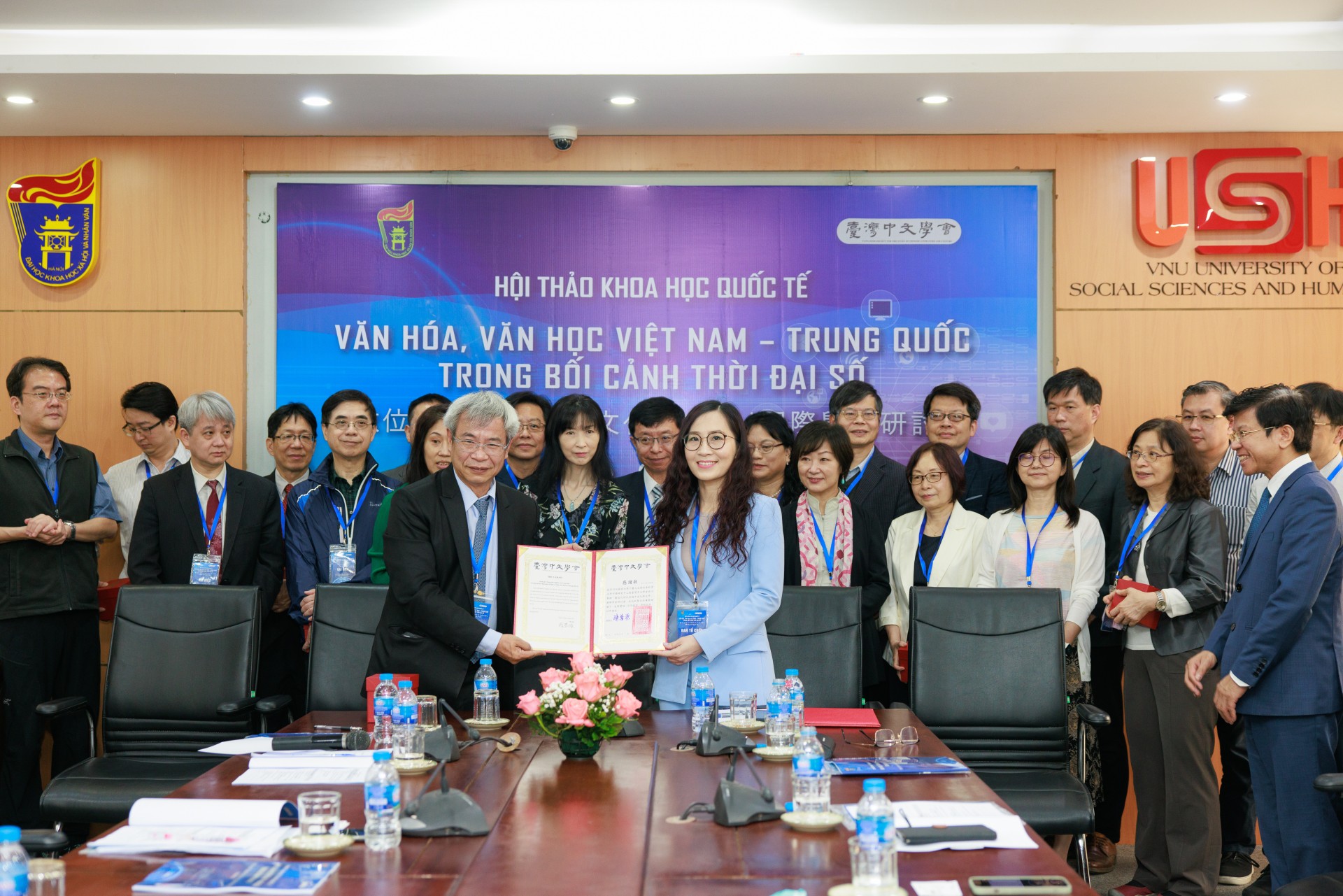
The workshop is an opportunity to enhance academic exchanges in Vietnamese-Chinese literature and culture research in the context of many social changes, specifically digital transformation and the era of globalization; and to strengthen international cooperation in training and scientific research activities between training institutions in Vietnam and Taiwan (China).
At the workshop, current issues of interest were discussed, such as the development of elite and popular culture and literature in Vietnam and China in the context of digitalization; the relationship between elite and popular culture and literature in the context of digitalization (cultural conflict, cultural reconciliation, etc.). Scientists have also conducted many research works comparing the development trends and characteristics of Vietnamese and Chinese culture and literature in the context of digital transformation as well as the adaptation and redirection of cultural and literary research activities in the context of digitalization in Vietnam and China, Taiwan (China). The workshop is also a forum for scientists to discuss the reception of Vietnamese and Chinese culture and literature in each country and territory in the digital environment, and the translation of literary works in Vietnam and China, Taiwan (China).
The research results expected to be announced at the International Conference “Vietnamese-Chinese Culture and Literature in the Digital Age” will be published in the Conference Proceedings published in Vietnam and Taiwan (China).
(*)Center for Chinese Studies(Center for Chinese Studies - CCS) was established on February 20, 2002, is a research, training and application unit in the field of Chinese studies, under the University of Social Sciences and Humanities, Vietnam National University, Hanoi. The mission of the Center is to take advantage of the basic scientific human resources of the University of Social Sciences and Humanities, organize comprehensive research on China, provide scientific data, current and academic knowledge for policy advice, international research and Vietnam research. The Center is responsible for supporting research and training in fields related to China at the University, gradually building it into a strong research center on China, establishing strong research groups and following the direction of an excellent research center, developing into a research institute when conditions permit, in accordance with the mission of the University of Social Sciences and Humanities and Vietnam National University, Hanoi.
Main research directions of the Center for China Studies:
- Research China's movements in social sciences and humanities, especially in the fields of culture, ideology, and education.
- Research on Confucianism and Vietnamese culture in the East Asian context.
- Research on the history of Vietnamese Sinology/Chinese Studies.
- Conduct research on various fields of China, including basic research, policy research and forecasting research, providing scientific arguments to enhance understanding of China, thereby improving the quality of decision-making as well as addressing challenges arising in the practical relationship between Vietnam and China.
- Synthesize and build a database system on highly applicable Chinese research.
- Contribute to building a highly competent Chinese research human resource, promoting connections between research units, policy makers, businesses, etc. in addressing challenges from China, serving the goal of sustainable and stable development of Vietnam.Some photos at the International Scientific Conference "Vietnamese - Chinese Culture and Literature in the Digital Age" held at the University of Social Sciences and Humanities on April 1-2, 2023:


